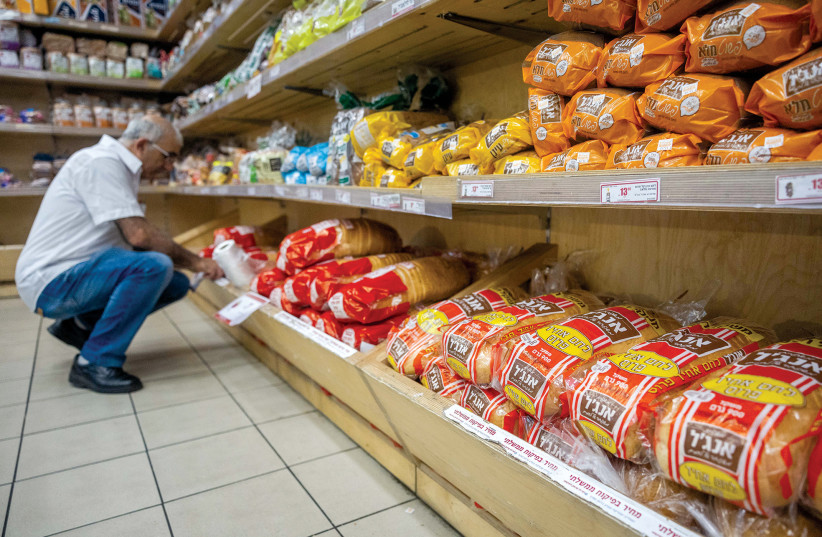Some 522,000 families in Israel are currently living with food insecurity, half of them severely so, though poverty and income inequality have slightly decreased, according to a new report from the National Insurance Institute (bituah leumi).
The survey was carried out in 2021 amid the COVID-19 pandemic and a return to economic growth.
Despite those figures, the survey showed general improvement in food security and the economy. While Israel’s gross domestic product decreased by 1.9% during 2020, it rose by 8.3% in 2021 – a high growth rate even compared to other developed countries. That is partially thanks to people who left work during the pandemic and are now returning.
The unemployment rate saw a very sharp drop, going from 35% at the height of the pandemic to just 5% in 2021 and wages rose.

Further, the percentage of families living with food insecurity went down from 18.1% in 2016 to 16.2% in 2021.
This was also the case among children. In 2016, 26.3% of children in Israel were living with food insecurity. In 2021, the percentage dropped to 21.1%.
Who is getting less money?
Overall, Israeli welfare spending is still significantly lower than it is in other countries.
Many government benefits provided during the pandemic have since gone away, such as financial support to families and businesses. Unemployment benefits were also reduced as a means of encouraging a return to work. However, incentive grants were also given to those who received unemployment benefits but had to return to work at a lower salary than what they had been getting paid before COVID.
In addition, even though subsidies decreased, the economic recovery more than made up for it, which means that average net incomes rose.
Which Israelis live with food insecurity?
The survey found that 16% of families and 21% of children live with food insecurity. These tend to be concentrated among the residents of the periphery and in the Jerusalem area.
In other words, one fifth (20%) of all children in Jerusalem and Israel’s North live with persistent food insecurity.
Most of the food insecurity is concentrated among Israel’s Arab sector and those who receive stipends from the government for either disability or minimum income-guarantee payments.
In fact, Arab-Israelis experience nearly three times more food insecurity than the national average.
It should be noted, though, that Israel’s ultra-Orthodox population has seen significant improvement in food security, and is now closer to the general public.
Another demographic to note are single parents, who are more likely to live with food insecurity than families with multiple income earners.
"Over half a million families in Israel live in food insecurity. This is a shocking and painful statistic that must be addressed urgently."
Yoav Ben-Zur
What do the politicians say?
Welfare and Social Affairs Minister Ya’acov Margi called food insecurity in Israel “an intolerable situation.”
“I have ordered officials in the Welfare and Social Affairs Ministry and National Insurance Institute to present a plan to me as soon as possible for the eradication of poverty and food insecurity in Israel,” he said in a statement. “As soon as that plan is presented, I will call for urgent discussions in the government to promote proposals to combat poverty and food insecurity.”
Minister in the Welfare and Social Affairs Ministry Yoav Ben-Tzur agreed, noting, “Over half a million families in Israel live in food insecurity. This is a shocking and painful statistic that must be addressed urgently.”
